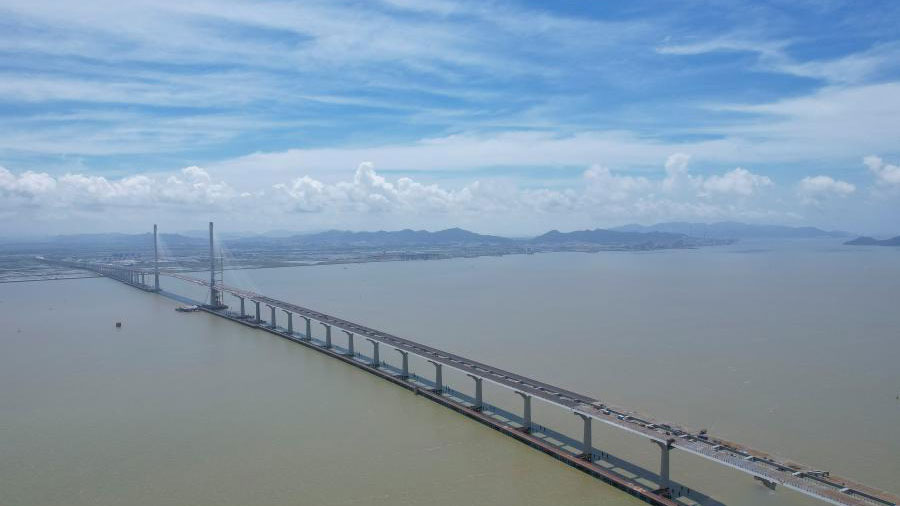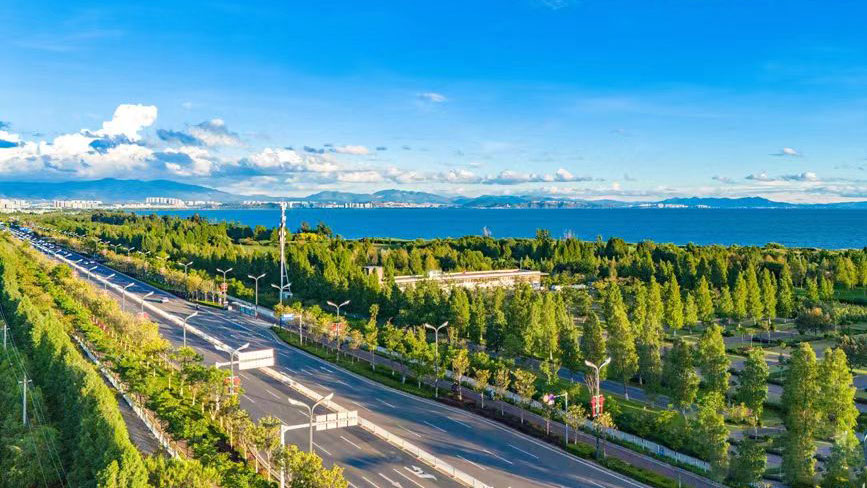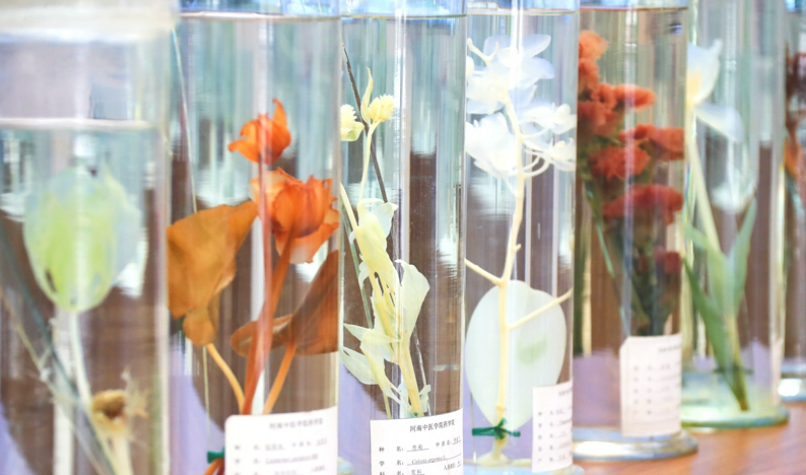Chinese, British families cherish eight-decade-old bonds formed in Lisbon Maru rescue
HANGZHOU, June 21 (Xinhua) -- From the stern of a wobbly ferry, Kenneth Andrew Salmon dropped a red poppy wreath bearing the picture of his father into the sea -- the exact same wreath was placed on his father's coffin during his funeral and had been preserved at home for 24 years.
The wreath kept afloat, riding away on the choppy, frothy waves off the Zhoushan Islands in east China's Zhejiang Province.
Salmon's father, Andrew Salmon, was a sergeant of the Royal Artillery and one of the 384 British prisoners of war (POWs) who were rescued by Chinese fishermen following the sinking of the Japanese-requisitioned ship Lisbon Maru in 1942.
On Tuesday, Salmon and a dozen of other descendants of British POWs visited the water of the sunken ship in Zhoushan, where they scattered white chrysanthemum petals -- a Chinese ritual for mourning the dead.
Among the visitors was 75-year-old Denise Wynne. She is the daughter of Dennis Morley, a soldier of the Royal Scots and a British POW who survived the shipwreck.
"My father always said that the fishermen were heroes, and if it weren't for the Chinese fisherman, he wouldn't have lived," Wynne said.
A TRIBUTE TO HEROES
In October 1942, Lisbon Maru, requisitioned by the Japanese army to carry more than 1,800 British POWs from Hong Kong to Japan, was torpedoed by the U.S. army near the Zhoushan Islands.
While the Japanese army were evacuated from the sinking ship, the POWs were left in battened cabins. Some managed to jump off the ship but faced the bullets of Japanese soldiers, who tried to stop their escape. It was at that moment when the Chinese fishermen came to the rescue, with paddles, fishing junks and shampan.
Hu Yifang, in his 70s, said his father Hu Keshun (also known as Hu Aagou) rescued eight POWs. The fisherman took multiple trips, as most of the other rescuers did, because his shampan had very limited seats, Hu said.
Historical records show 198 Chinese fishermen brought 384 POWs to haven. A total of 843 POWs died in the incident: some of them sank along with the ship, others drowned or were killed by Japanese soldiers during the desperate escape.
"I think for the rest of his life, my father felt he was so lucky. He almost felt guilty, because he survived, but so many didn't," Salmon said.
When asked why she decided to take on the journey to China, Wynne became profoundly emotional.
"I want to say 'thank you' to the relatives of the Chinese fishermen. I just want to say 'thank you', and 'thank you' on behalf of my father as well," Wynne said.
"It could have been terrible, could have been worse. They were so brave to come out," she added.
Last Friday, they were in Shanghai for the premiere of a documentary "The Sinking of the Lisbon Maru." The history consultant of the film, Tony Banham, is one of the early researchers of the incident.
"One group of human beings saw another group of human beings in trouble and dropped everything, without knowing who they were, and rescued them at great risk of their own lives. That is a timeless story," said the British historian.
"I think it's a very powerful story to tell at any time in human history," he added.
A FRIENDSHIP THAT LASTS
The descendants of rescuers and the rescued met by chance on Monday evening, a day ahead of their scheduled meeting. Both groups were strolling along the seashore when Chen Xuelian, another rescuer's daughter, recognized Wynne. After a flurry of hugs and tears, they decided to call each other brothers and sisters.
"Our forefathers have passed, but we still have each other," Chen said.
Many descendants keep a piece of the past with them. Kenneth Andrew Salmon inherited his father's first name as his middle name; Denise Wynne has the female form of her father's first name as hers. Chen operates a home inn overlooking the place where his father dragged the POWs onshore, while Liang Yindi, whose grandfather was a rescuer, provides guide service in a small museum in memory of this incident.
"This is a friendship our families left for us, for the present, for our generation," said Wu Buwei, whose grandfather, Wu Qisheng, participated in the rescue.
"And it's about two peoples, too," Chen said. "The two countries are thousands of kilometers apart, and yet we met and befriended each other."
Photos
Related Stories
- China opposes UK sanctions against Chinese firms over Russia
- 'Touching the Greater Bay Area' China-UK cultural exchange program kicks off in Guangdong
- Xinhua president meets honorary president of Britain's 48 Group Club
- UK-China tech businesses boost cooperation at London Tech week
- UK-China arts event celebrates rich history, cultural exchanges
- Chinese ambassador urges businesses to explore cooperation at UK-China business summit
- UK-China business leaders convey confidence in business tie
- Roadshow for 2nd China Int'l Supply Chain Expo held in London
- "Problem of China's overcapacity" does not exist, says Chinese ambassador
- Tea, tea culture from central China showcased in Britain
Copyright © 2024 People's Daily Online. All Rights Reserved.









